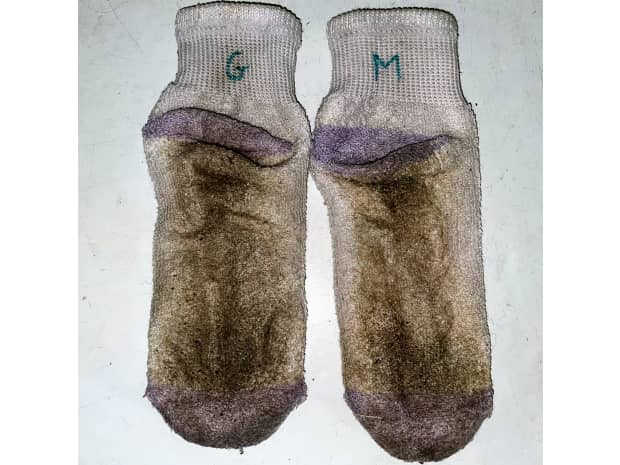
Dirty socks
This is the usual state of the kid’s socks.

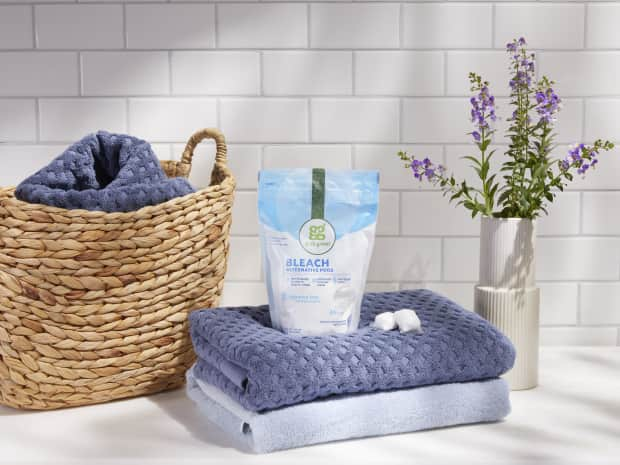
Last Updated: August 27, 2021
Non-chlorine bleach is a popular, color-safe alternative to chlorine bleach — but does switching give you whiter whites, brighter colors, and stain-fighting power? Grove writer Kristen Bailey made the switch to non-chlorine bleach, and she’s here with before and after pics to show & tell you all about it.
I stopped using bleach in the household some time back, when I found out that it’s not normal to be able to taste it for an hour or two after using it — I guess I’m extra-sensitive to its fumes.
But since bleach and I split, I’ve definitely noticed a decline in the brightness of the whites around here, so I was excited to take non-chlorine bleach for a spin. I tried a couple of popular brands: Molly’s Suds Oxygen Whitener and Grab Green Bleach Alternative Pods.
If you’re contemplating a breakup with bleach, step into my laundry room, and see for yourself whether non-chlorine bleach is a worthy replacement.
Non-chlorine bleach is exactly what it sounds like — bleach without chlorine in it. But, you may say (as I did), isn’t bleach just ... bleach?
Nope! But over decades of widespread use, chlorine bleach became simply, “bleach.”
So let’s back up and ask, what is bleach? Bleach is a generic term for any product that chemically removes color and/or stains from fabric. The two main types of bleach used in households and industry are chlorine-based bleach and hydrogen peroxide-based bleach.
Non-chlorine bleach also commonly goes by “bleach alternative,” which isn’t technically true, since oxygen bleach is still a type of bleach.
To me, a “bleach alternative” would be more along the lines of things that aren’t bleach, but which do have whitening powers — like vinegar, borax, or baking soda.
Ah, that’s the catch. Oxygen bleach isn’t as effective as chlorine bleach for whitening your clothes or removing stains, in the same way rubbing alcohol isn't as effective as acetone for removing nail polish — but it’s a whole lot better for you and for the environment.
Non-chlorine bleach also doesn’t disinfect as well as chlorine bleach, which is why it’s primarily sold for doing laundry.
But, that’s why I’m here to test out oxygen bleach on some tough stains to see just what it actually does. I tried both brands of non-chlorine bleach, first as a whitener and then as a stain-remover. Here’s what happened.
GROVE TIP
Sure. Sometimes, chlorine bleach is the best choice.
In our recent Ask an Expert article about non-chlorine bleach, Clement Choy, Ph.D., our own Senior Director of Science Formulation, explains the problems with chlorine bleach and why switching to non-chlorine bleach is better in many ways.
Still, he says, chlorine bleach gets unfairly stigmatized. “Chlorine on its own is a very effective molecule and actually saves a lot of lives just because it’s a powerful disinfectant. But as with anything that’s used incorrectly, or not in the proper amount, it does have some environmental impact.”
Dr. Choy recommends trying non-chlorine bleach or whitening your clothes another way before reaching for the hard stuff. But, “if you have whites, and you really want them to be more clean and bright,” he says, “you may need to use chlorine bleach in your washing machine with especially dirty clothes.”
I washed two loads of whites — one with Molly’s Suds, and one with Grab Green, plus my usual natural laundry detergent. Fresh out of the dryer, I could tell that both loads looked whiter and smelled cleaner, but the camera couldn’t see the difference.
So I washed two more loads. This time, I included two of the kid’s filthy stuffed animals, one pair of her befouled socks, and four of my gentleman’s laundered-but-stained, yellowed shirts that he’d tossed in the rag bag long ago.
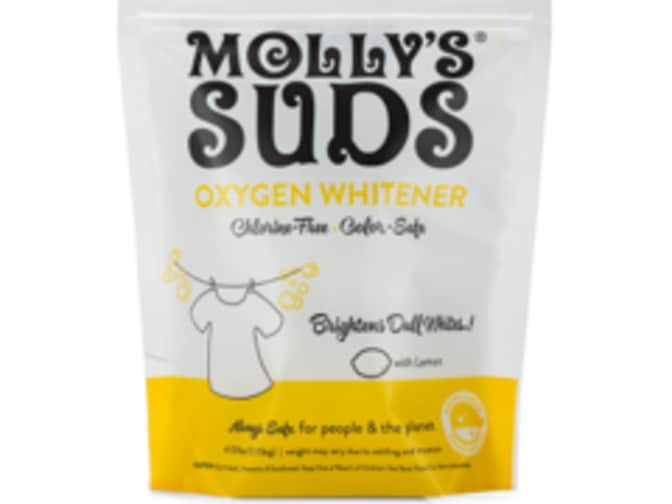
Ingredients: Sodium percarbonate, sodium carbonate, citric acid, organic lemon essential oil
What it says it does: Brightens dull whites
Standard directions for whitening: Add two scoops (one scoop for high efficiency washers) to hot water, then add clothes/sheets/towels. Soak for 30 minutes, then run the load as usual.
Water temperature: Hot water
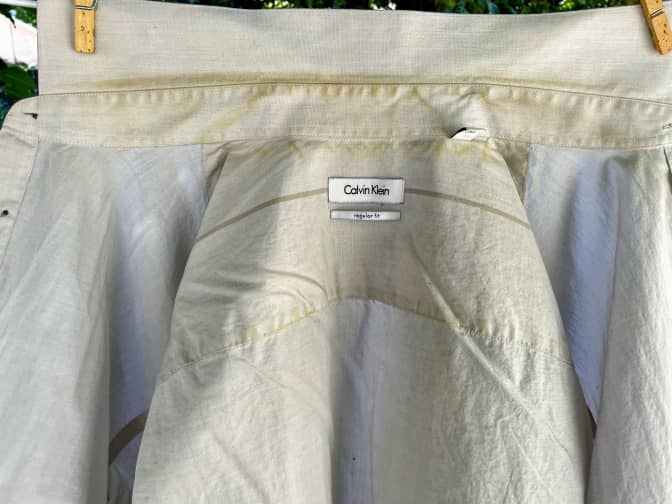
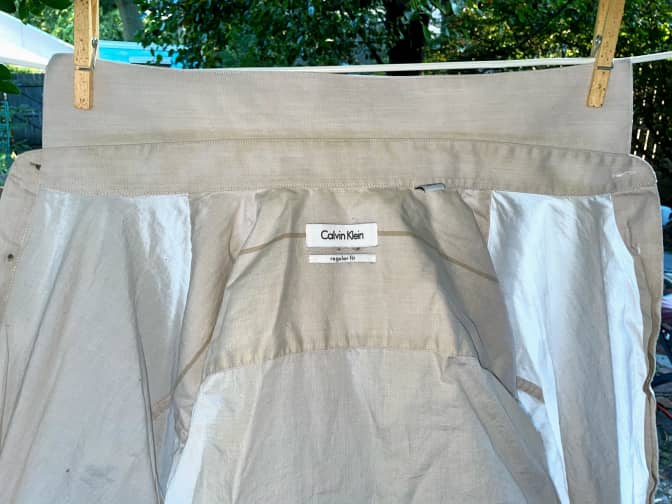
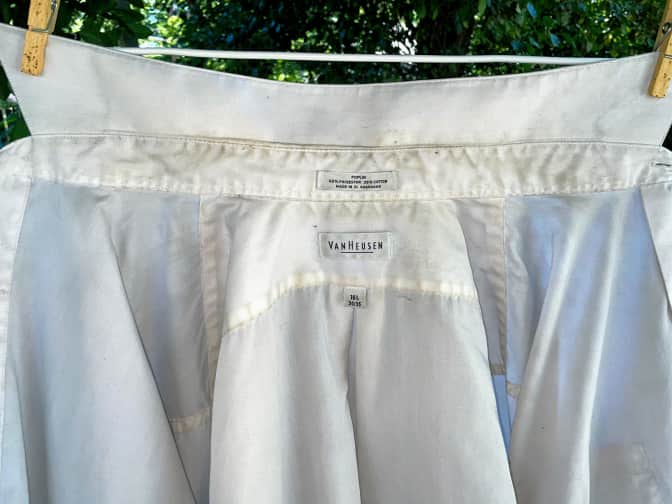
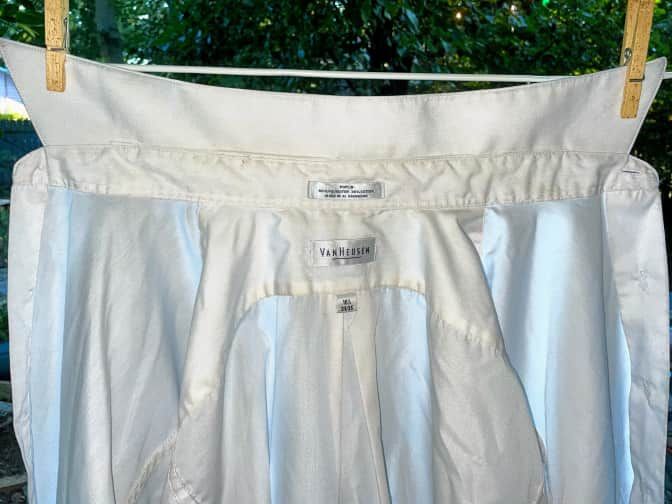
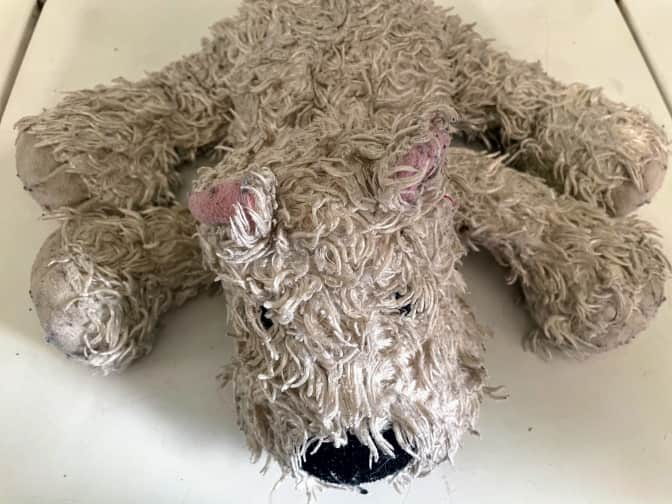
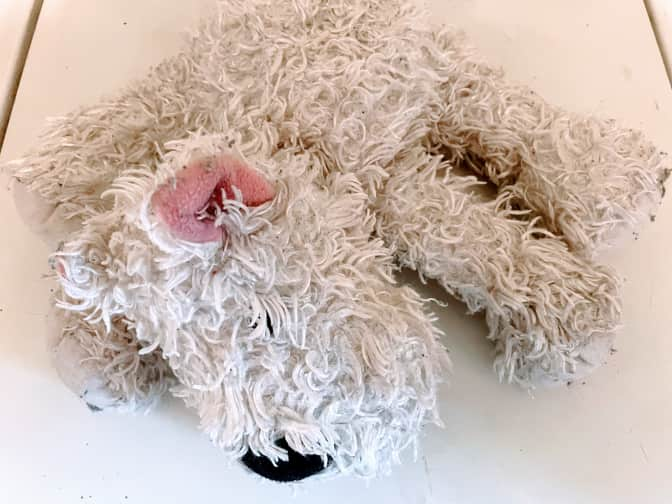
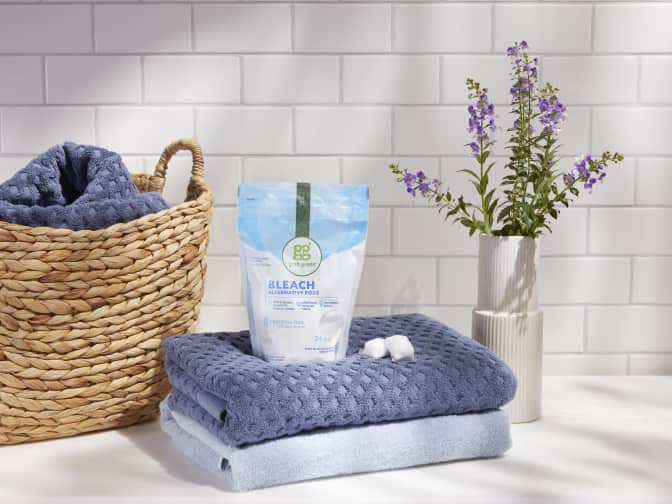
Ingredients: Sodium carbonate peroxide, sodium carbonate, polyvinyl alcohol (forms the pod)
What it says it does: Brightens whites, removes stains, neutralizes odors
Standard directions: Use one pod for small or medium loads or two pods for large or extra-large loads. Toss into the washer, add clothing, and wash as usual.
Water temperature: All temperatures — I used cold water for this load.
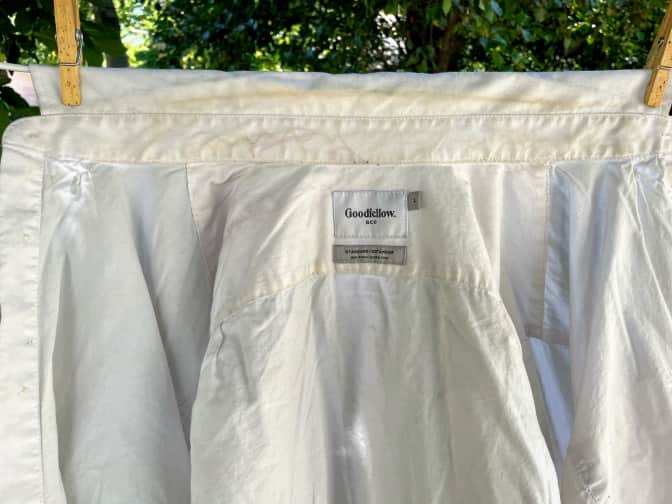
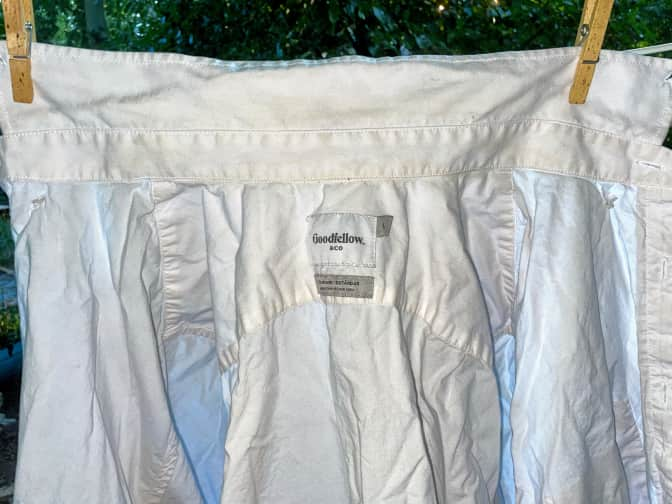
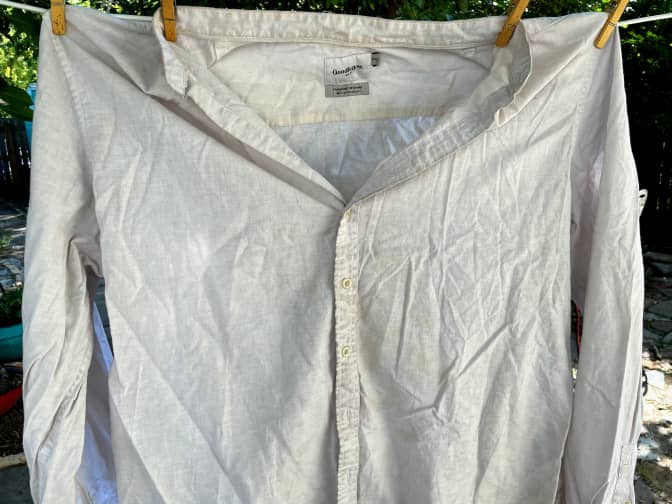
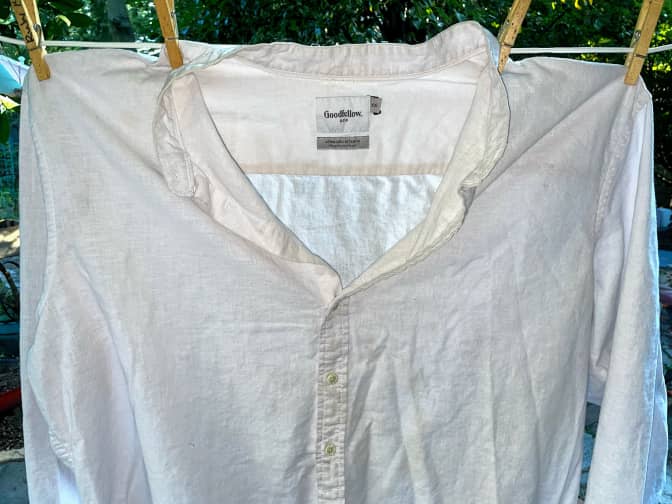
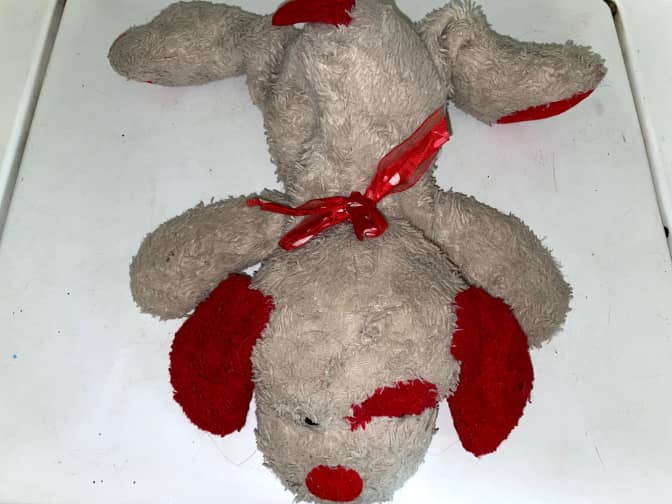
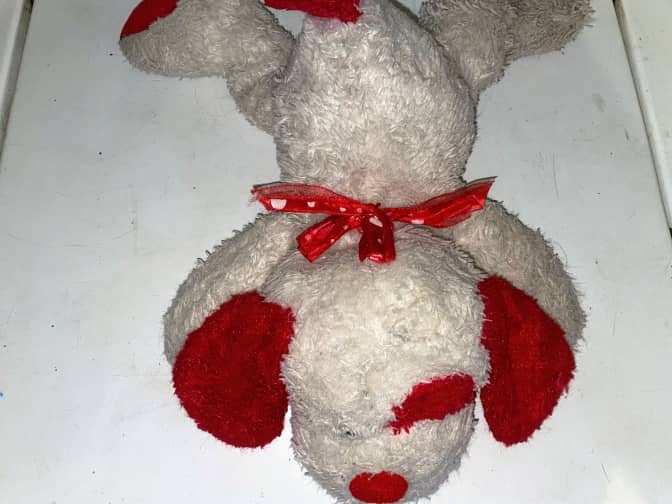
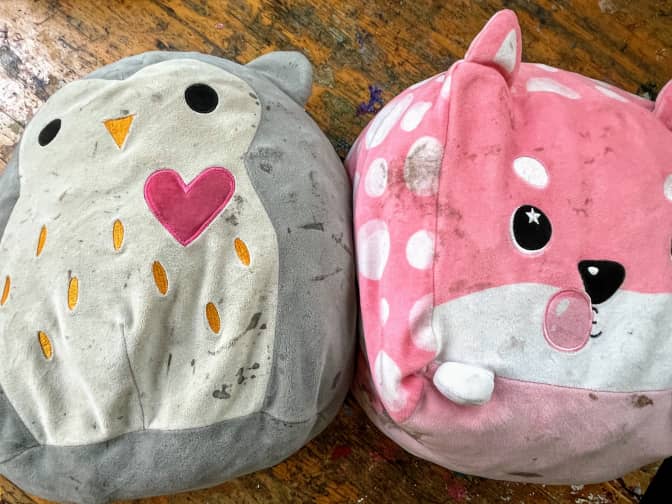
Both Molly’s Suds and Grab Green have directions for a stain-busting soak, so I looked through my kid’s stuff to find the filthiest, most heavily stained items — and I wasn’t disappointed! Meet Marshall and Bubbles, who get put through a lot.
I filled both sides of the kitchen sink with hot water. I added two scoops of Molly’s Suds to the left side and one Grab Green pod to the right side. I submerged Marshall in the left sink, Bubbles in the right.
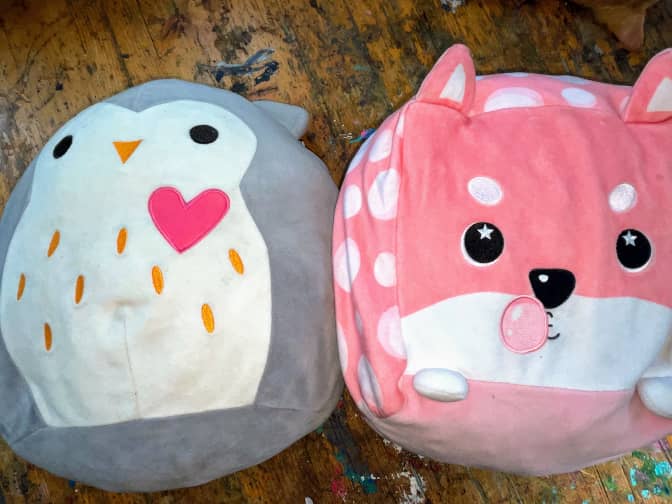
I let them soak for three hours, then washed each one with a load of sheets in hot water — I poured in my natural detergent, and to boost it, I added one scoop of Molly’s Suds to Marshall’s load and one pod of Grab Green to Bubbles’.
I don’t have to tell you what my verdict is, right? (Big thumbs-up.)
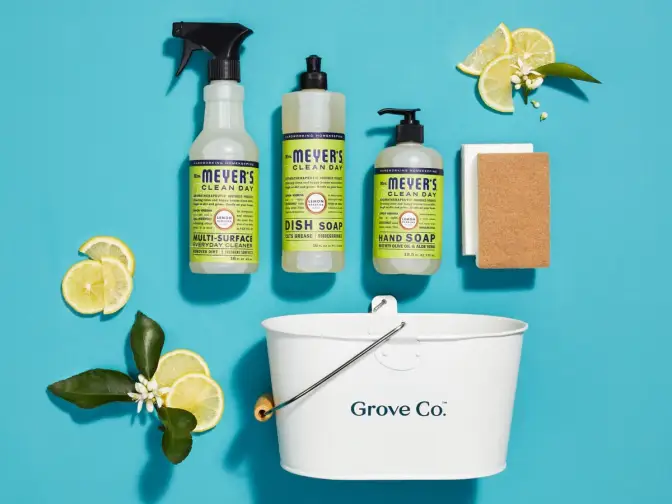
Wondering who Grove is, what types of products we offer, and how to get a free gift set when you sign up? Learn more about flexible monthly shipments, customizing your shipment, and joining millions of happy households — no monthly fees or commitments required.
Oh, right — the socks! I labeled them with a green Sharpie and washed each one with its corresponding load.

This is the usual state of the kid’s socks.
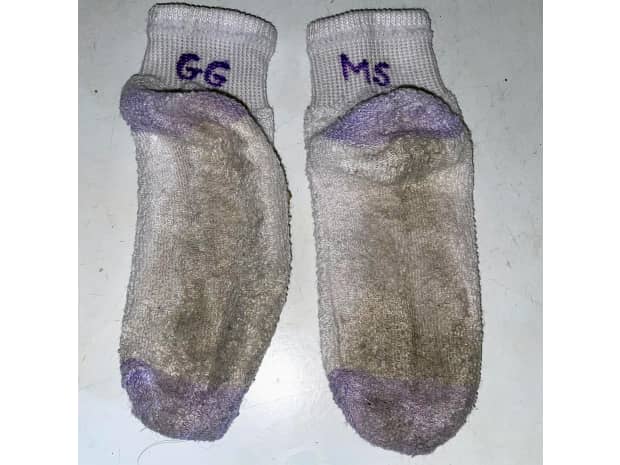
Both products removed the green Sharpie letters from the socks, which is pretty cool. The socks don’t look a whole lot better, though. I rewrote the letters with a thick purple Sharpie and tossed each sock into its corresponding sink soak with Marshall and Bubbles.
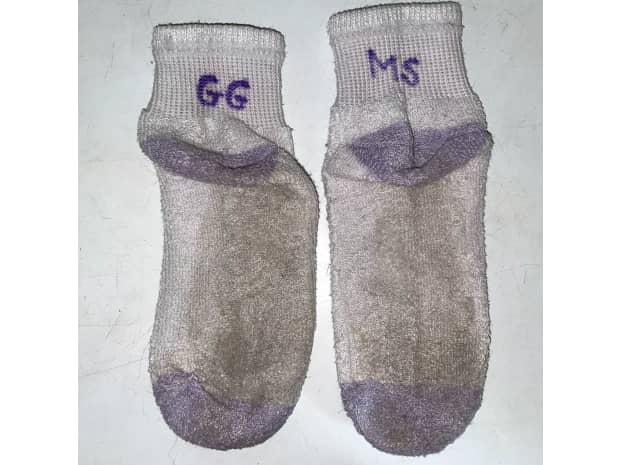
The three-hour soak did a pretty good job getting them a little cleaner. Seems Molly’s Suds was ever-so-slightly more effective — notice the faded Sharpie “MS”.
Oxygen bleach isn’t the stuff of laundry miracles, but it’s definitely worth keeping around for washing day. If you’re a chlorine bleach user and need more convincing, why not take non-chlorine bleach for a test-drive yourself? It’ll boost your detergent and whiten everyday loads — and if you need a little chlorine bleach fix every now and then, go for it!
Because remember: Going green doesn’t have to be all-or-nothing, or happen all at once. Here are more great simple swaps you can make to chip away at your carbon footprint, little by little.
Kristen Bailey is a writer in the Midwest who might consider buying white clothes again, thanks to oxygen bleach.
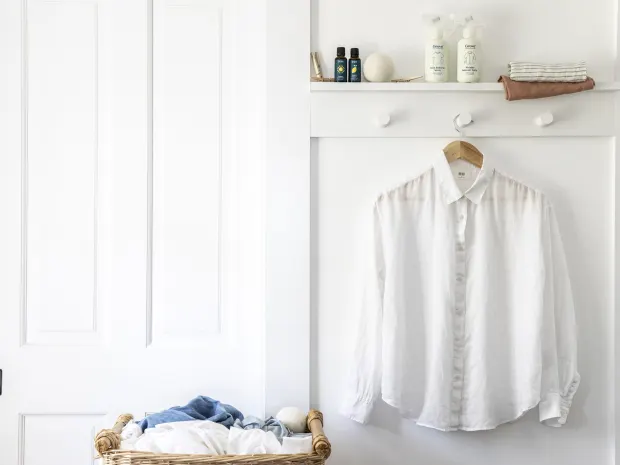
Wishing your favorite white shirt was actually white again? With our step-by-step guide, we’ll show you how to wash white clothes to make them shine.

We've pulled the top 9 laundry detergents as determined by Grove members. Select from any on the list and get them delivered to your door!
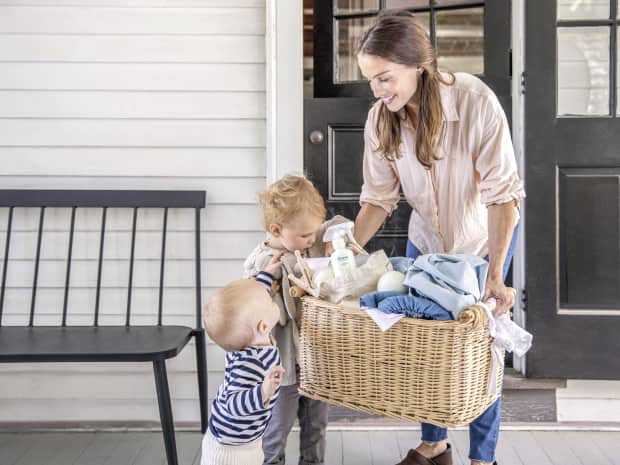
We tapped on Grove’s in-house experts to answer all your burning questions about dryer sheets. Plus, find out if there's a better alternative.
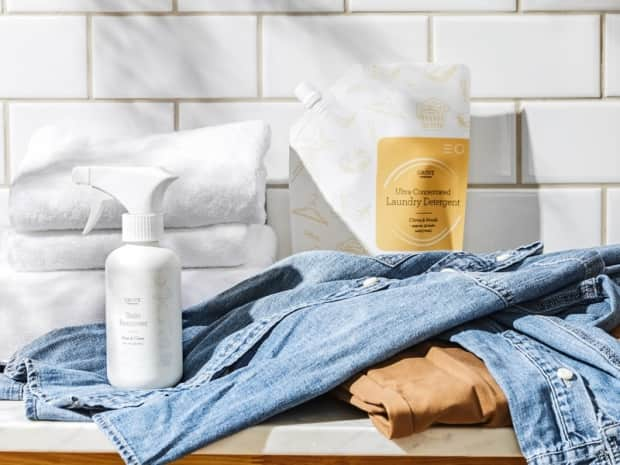
A good laundry stain remover can really lighten the load when it comes to your household’s dirty clothes. Here's our favorites.